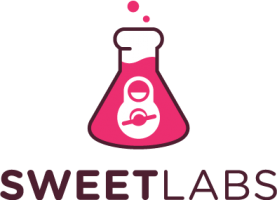
It might seem like the company that brought the Start menu back to Windows 8 would be quaking in its boots over Microsoft’s own plans to restore the Start menu in an upcoming operating system update. But SweetLabs isn’t worried.
The San Diego-based company, which has an engineering office in Seattle, may be best known for the Start menu replacement capability of its Pokki app store. But Chester Ng, one of SweetLabs’ co-founders, tells GeekWire that the Start menu hasn’t been a priority as of late.
“We haven’t really touched the Start menu for a while,” he said in an interview.

Instead, SweetLabs has used the Pokki app store to partner with hardware manufacturers like Lenovo in an attempt to solve one of the major pain points for computer manufacturers and users: pre-installed software. The programs, often not-so-affectionately called “crapware” by consumers, are installed on devices along with the operating system and any software customers might have requested like Microsoft Office or Adobe Photoshop Elements. SweetLabs wants OEMs to ditch the crapware and embrace dynamic app recommendations.
Sweetlabs is working to solve the crapware problem by offering manufacturers a new app distribution platform that gives users recommendations and offers developers a cut of the ad revenue. Developers get all of the revenue from the sale of the app through SweetLabs’s platform, but when they advertise, SweetLabs shares a cut of those dollars with device manufacturers.
OEMs often pre-install crapware because of the slim margins on the devices they sell. By charging developers for the ability to pre-install their software on users’ devices, manufacturers can boost the profitability of their hardware. But Ng says that the traditional model isn’t serving anyone well — neither end users, devs nor computer makers.
“Really, if you think about the way the software preload model works, it’s broken,” he said.
Ng said that while the pre-install model may have worked in the 90s, OEMs haven’t updated their model, and everyone is suffering for it. Now that it’s possible to install software over the Internet, users really don’t get any value out of pre-installed software. What’s more, it’s not possible for manufacturers to pre-install time-sensitive software like TurboTax onto devices because they don’t know exactly when those devices will actually ship out, and the software they do ship is instantly outdated because the devices have been waiting around in a warehouse for months.
With SweetLabs’ platform, users can get context-aware recommendations, tailored to their particular situation. For example, a user who has a convertible laptop in tablet mode might get a game recommended to them after work hours, or they might see a recommendation for a productivity tool over their lunch break.
For developers, Ng thinks that the company’s system brings a few strong value propositions, calling it “waterfront property” for app makers. SweetLabs’s software is able to target users more specifically than a pre-install setup, which should drive more installs and provide better analytics about the users downloading software.
OEMs end up getting a better deal under the proposed system because they would be able to get a percentage cut of ad revenue over the course of a device’s lifetime, not just a set fee for pre-installed software. Using SweetLabs’s system doesn’t preclude them from pre-installing software, either. For example, Ng said that he thought OEMs would always ship their devices with some form of antivirus software pre-installed.
At a time when manufacturer revenues are shrinking, SweetLabs’s system could provide a lifeline to hardware companies. It also represents a major potential user base for SweetLabs, which currently has more than 50 million users running Pokki. Ng says that he sees a big opportunity for the company in the future.
“Developers are looking for any way they can to reach new users. There’s a sea of apps out there. How do you stand out? How do you reach new users?” he said. “We feel like there’s this untapped opportunity, through OEMs, to get in front of all these people buying these brand new devices.”
SweetLabs, whose Seattle engineering office is in Pioneer Square, is backed by investors including Bessemer Venture Partners, Google Ventures, and Intel Capital.




